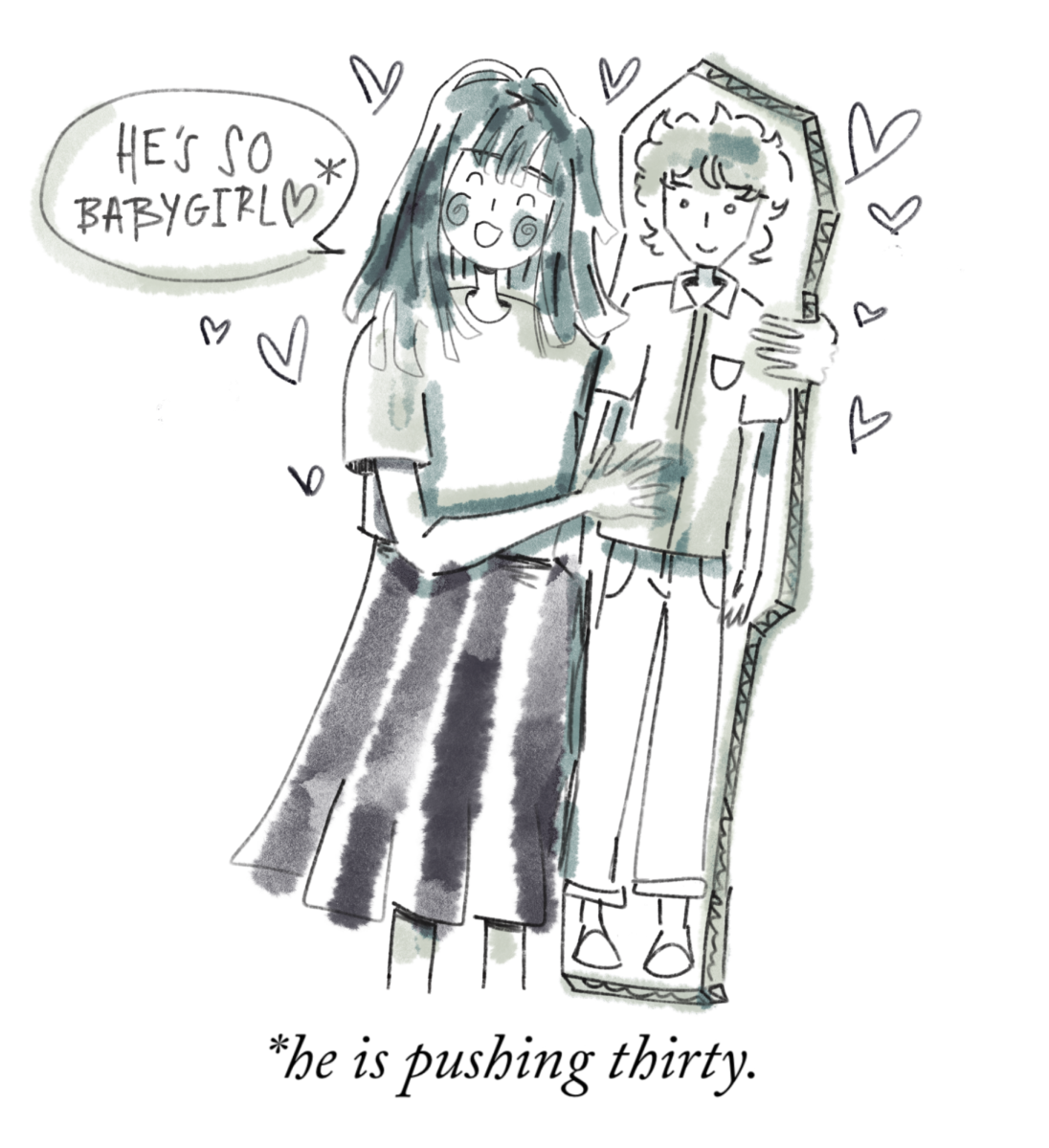When does following an actor on all social media platforms cross into the territory of devoting excess amounts of time, money and emotional energy to what is simply a perception of an idol? For some of us, the line is too blurry. This perception of celebrities is problematic because it contributes to unhealthy overconsumption of products and media.
In an age where celebrity culture dominates the lives of youth, it can be difficult to recognize the distance between our lives and the ones of celebrities, artists or influencers we see online. When a one-sided relationship between a consumer and a media personality becomes infatuation founded upon emotional attachment, it evolves into a parasocial relationship, which has prolonged negative impacts on our psychologies.
These relationships often start innocently enough: doing some research on an actor after finishing a show, seeing a funny compilation on TikTok and following a celebrity across multiple social media platforms. Eventually, this turns into problematic, emotionally dependent signs of unreciprocated devotion where you’re keeping up with what they’re doing every day and even creating your own fan content to connect with others who also love that person.
This development between fan and personality is fostered by the rise of the internet-driven pop culture. Social media posts are carefully curated to have just a touch of relatability and humanity, working to bring the viewers into the celebrities’ lives and making us feel like we’ve been let into the intimate bubble of life that we all have—us normal people, that is.
That isn’t to say that these relationships are inherently evil; in fact, studies from Wellesley University show that adolescents can benefit from them, as they develop autonomy and learn important skills in social development. Additional research published by the National Library of Medicine even shows that they aid mental, emotional and psychological well-being in people with low self-esteem or anxious and avoidant attachment issues.
However, the amount of commitment put into these relationships can get problematic: not just for your mental health, but also for your wallet. Due to the limited number of ways that we can feel closer to someone who doesn’t actually know us, many begin indulging in the only way they know how: throwing money at millionaires and hoping that it brings us that hit of serotonin from a pseudo-social interaction.
The examples are endless: fans buying out a product that their celebrity uses, spending thousands of dollars on travel, accommodation and tickets to follow an artist on tour or buying every piece of merchandise that gets released.
The physical detrimental effects are the more obvious ones—when the obsession crosses the boundary from a screen to real life, celebrities can suffer from the consequences of their boundaries being violated. Twitch streamers and K-Pop idols are just some of many cases of parasocial relationships damaging mental wellness.
These relationships have also been found to contribute to symptoms of depression and anxiety in the fan, not just the celebrity. At its most severe, it can lead to erotomania, a diagnosable but rare form of delusional disorder involving an unfounded conviction that someone is in love with you, making it difficult to accept any information that may suggest otherwise.
While engaging in fandom spaces and forming connections can be helpful to the adolescent mind, maybe it’s time to look back at what you’ve given into these relationships and what you’ve gotten in return. In addition to being irresponsible with your money, becoming invested in a celebrity’s life to the point of basing your happiness on their happiness and taking all comments against them as a personal attack on you is not a healthy infatuation, but an emotional dependence.



![AAAAAND ANOTHER THING: [CENSORED] [REDACTED] [BABY SCREAMING] [SIRENS] [SILENCE].](https://thehowleronline.org/wp-content/uploads/2025/06/lucy-1200x800.jpg)
















































